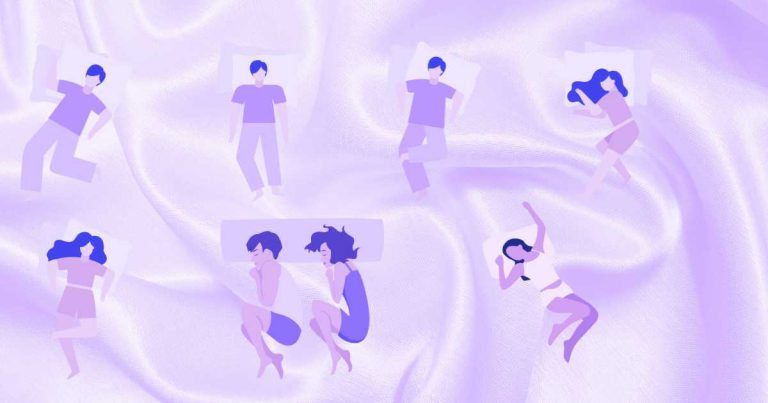Medications, both prescription and over-the-counter, can profoundly impact the quality and content of our dreams as well as our overall sleep architecture. From influencing REM sleep to triggering vivid dreams or nightmares, drugs interact with our brain chemistry in fascinating ways.

Grasping these effects sheds light on the intricate interplay among medications, various sleep stages, and the process of dreaming.
Key Takeaways:
- Many common medications, including antidepressants, blood pressure drugs, and allergy medicines can alter sleep patterns and dreaming
- Medications may suppress REM sleep, leading to REM rebound and intense dreams upon discontinuation
- Some drugs cause nightmares, lucid dreams, and other dream disturbances
- Knowing the potential effects of medications on sleep and dreams can help optimize treatment and minimize disruptive symptoms
How Medications Influence Sleep Architecture
The architecture of sleep—the structure and pattern of our sleep cycles—is surprisingly delicate. Each stage of sleep, from light sleep to deep slow-wave sleep and REM sleep, plays an important role in our physical and mental restoration. Medications can disrupt this finely-tuned balance.
Many psychiatric drugs, particularly antidepressants, powerfully suppress REM sleep. Tricyclic antidepressants and SSRIs can reduce time spent in REM sleep by up to 40-85%. This occurs because most antidepressants increase serotonin activity, and serotonin neurons are known REM-off cells that inhibit REM sleep initiation.
Medication Class | Effect on Sleep Architecture |
|---|---|
Tricyclic antidepressants Get free Dream Interpretation by using our Dream App | Suppress REM sleep, increase light sleep |
SSRIs | Suppress REM sleep |
Benzodiazepines | Increase light sleep, decrease deep sleep, variable REM effects |
Z-drugs (Ambien, Lunesta) | Increase light sleep, variable REM effects |
Beta blockers | Decrease REM sleep, increase awakenings |
The consequences of REM suppression from antidepressants are not entirely clear. REM sleep is believed to be important for memory, emotional processing, and learning. Animal studies show that complete REM deprivation can be fatal. However, the degree of REM suppression from medications may not be harmful, as many people successfully take antidepressants long-term.
Interestingly, when REM-suppressing drugs are discontinued, a REM rebound effect can occur. The brain compensates for the lost REM by significantly increasing REM sleep, sometimes up to 30% higher than baseline. During this rebound period, dreams are often especially vivid, bizarre, and emotional.
Other medications have different impacts on sleep stages:
- Benzodiazepines and Z-drugs used for insomnia increase light sleep and tend to decrease deep slow-wave sleep. This reduces sleep quality. Effects on REM vary.
- Some blood pressure medications like beta blockers decrease REM and increase nighttime awakenings. ACE inhibitors can cause a dry cough that disrupts sleep.
- Stimulant drugs like Adderall and Ritalin used for ADHD cause insomnia and decrease total sleep time. They also suppress REM sleep.
- Nasal decongestants and some asthma inhalers are mildly stimulating and can lead to insomnia, especially if taken later in the day.
Understanding how various medications change sleep architecture can help doctors and patients optimize the timing and dosage of drugs to minimize sleep disruption. Sometimes taking a medication earlier in the day, using a lower dose, or switching to a different drug can improve sleep quality.
Medications and Dream Content
In addition to altering sleep stages, some medications are notorious for changing the content and emotional tone of dreams. These effects can be distressing, especially if nightmares result, but can also provide intriguing clues into the brain-mind interface.
Medications that powerfully increase a particular neurotransmitter tend to yield dreams with a specific emotional flavor. For example:
- Cholinesterase inhibitors like donepezil that increase acetylcholine are known for causing extremely vivid, detailed dreams. Acetylcholine circuits activate during REM to encode dream content.
- Dopaminergic drugs like Parkinson’s medications and certain stimulants often lead to grandiose, euphoric dreams, and sometimes nightmares. Dopamine plays a key role in reward circuits.
- Noradrenergic drugs like norepinephrine reuptake inhibitors frequently cause nightmares. Norepinephrine creates a fight-or-flight state of hyperarousal.
The most common medications that alter dream content include:
- Antidepressants, especially SSRIs like paroxetine and venlafaxine
- Cholinesterase inhibitors for Alzheimer’s like donepezil and rivastigmine
- Parkinson’s drugs like levodopa, ropinirole, and pramipexole
- Blood pressure drugs like beta blockers and clonidine
- Smoking cessation medications like varenicline and bupropion
- Certain antibiotics like ciprofloxacin and penicillin
These medications can provoke a range of dream changes:
- More vivid, detailed, and bizarre dreams
- Increased frequency of nightmares
- Emotionally intense or aggressive dreams
- Increased likelihood of lucid dreaming
- Ability to recall dreams in greater detail
- Recurring dreams or dream themes
Sometimes these medication-induced dream changes can be disturbing, especially nightmares. Patients may not realize a new medication is the culprit. If dream disruption is severe, sometimes an alternative medication can be found.
Rarely, medications can trigger a dangerous REM sleep behavior disorder, where patients act out violent dreams. This requires prompt medical attention. Medications most implicated include antidepressants and melatonin.
Paradoxical Dreaming and Nightmares
One of the most striking dream phenomena is “paradoxical dreaming” caused by REM-suppressing antidepressants. Up to 15% of patients taking these drugs report very vivid, strange dreams and nightmares, even though their REM sleep is reduced.
This paradoxical effect may occur because serotonin neurons actively inhibit REM sleep, but the dream-generating circuits are still periodically activated. Serotonin does not fully suppress all REM processes in the brain. So dreams erupt into consciousness without the usual muscle paralysis of REM, leading to dream-enactment and restlessness in bed.
Common SSRI antidepressants that cause paradoxical dreams include:
- Paroxetine (Paxil)
- Fluoxetine (Prozac)
- Sertraline (Zoloft)
- Escitalopram (Lexapro)
- Venlafaxine (Effexor)
Paradoxical dreaming resolves in most patients after several months on an antidepressant. If nightmares persist, sometimes an additional medication like the alpha blocker prazosin or a low-dose antipsychotic can help. Behavioral treatment for nightmares may also be effective.
Medications Used to Enhance Dreaming
On the flip side, some people seek to increase the intensity and recall of their dreams by using medications and supplements. While no drugs are FDA-approved for this purpose, a few substances are used experimentally to enhance dreaming:
- Galantamine: This Alzheimer’s drug increases acetylcholine in the brain. When taken at night, it can lead to vivid dreams and lucid dreams. However, side effects like nausea are common.
- Vitamin B6: Vitamin B6 is a cofactor for serotonin and dopamine synthesis. One small study found vitamin B6 before bed increased dream vividness and recall. Very high doses can cause nerve damage.
- Melatonin: The sleep hormone melatonin modestly increases REM sleep duration. It may intensify dreams in some people.
- Nicotine patch: When used for lucid dream induction, nicotine patches can increase dream vividness and bizarreness. However, they disrupt sleep quality.
- Calea zacatechichi: This Mexican herb has been used traditionally to enhance dreams. Its active constituents and mechanism are unknown. Side effects like nausea and vomiting are common.
None of these substances are proven safe or effective for altering dreams. They may interact with other medications or health conditions. Using drugs experimentally to change dreams is not advisable without medical supervision.
Future Research Directions
The study of how medications change sleep and dreaming is an active area of research. Some intriguing questions include:
- Can specific medications be used to treat nightmares or enhance positive dreams? Prazosin shows promise for PTSD nightmares.
- How do medication-induced dream changes correlate with therapeutic effects on depression, anxiety, or other conditions? Dreams may reflect emotional processing.
- Can dream reports be used to predict which medication will work best for a given patient? The emotional content of dreams may hint at a drug’s effects.
- How do medications affect the consolidation of memories during sleep? Slow-wave and REM sleep are critical for memory processing.
- Can studying medication effects on dreams shed light on the neurochemical basis of spontaneous dream generation? Drugs provide clues about the role of specific neurotransmitters.
As research advances, a better understanding of the complex links between medications, sleep, and dreams will emerge. This knowledge could lead to improved treatments that optimize therapeutic effects while minimizing sleep-related side effects. It may also reveal fundamental insights into the biological basis of dreaming and consciousness itself.
Optimizing Medication Use for Sleep and Dreams
For anyone taking a medication that affects sleep or dreams, some strategies can help optimize therapy:
- Take medications earlier in the day if possible to minimize sleep disruption. This is especially important for stimulating drugs.
- Start with the lowest effective dose, and increase gradually as needed. Higher doses tend to have greater impacts on sleep.
- Be aware of potential drug interactions that could worsen sleep problems. For example, adding Benadryl to an antidepressant may compound REM suppression.
- Avoid alcohol and caffeine, especially near bedtime. These substances can further disrupt sleep and exacerbate medication side effects.
- Practice good sleep hygiene, with regular sleep-wake times, a dark quiet bedroom, and a relaxing pre-bed routine. Healthy sleep habits are important for everyone.
- Consider cognitive-behavioral therapy for insomnia (CBT-I) to improve sleep quality without relying solely on medications. CBT-I is the gold-standard treatment for insomnia.
- If nightmares or dream disturbances are severe, talk to your doctor. Sometimes a different medication, dose adjustment, or additional treatment can help.
- Keep a dream journal to track changes in dream content and intensity over time. This can provide valuable information for your doctor.
- Remember that most medication-related sleep and dream disturbances are temporary. They often improve as your body adjusts to a new drug.
By working closely with your healthcare provider, you can find the best medication regimen for your individual needs. Prioritizing healthy sleep and minimizing dream disturbances will support your overall treatment goals and quality of life.






